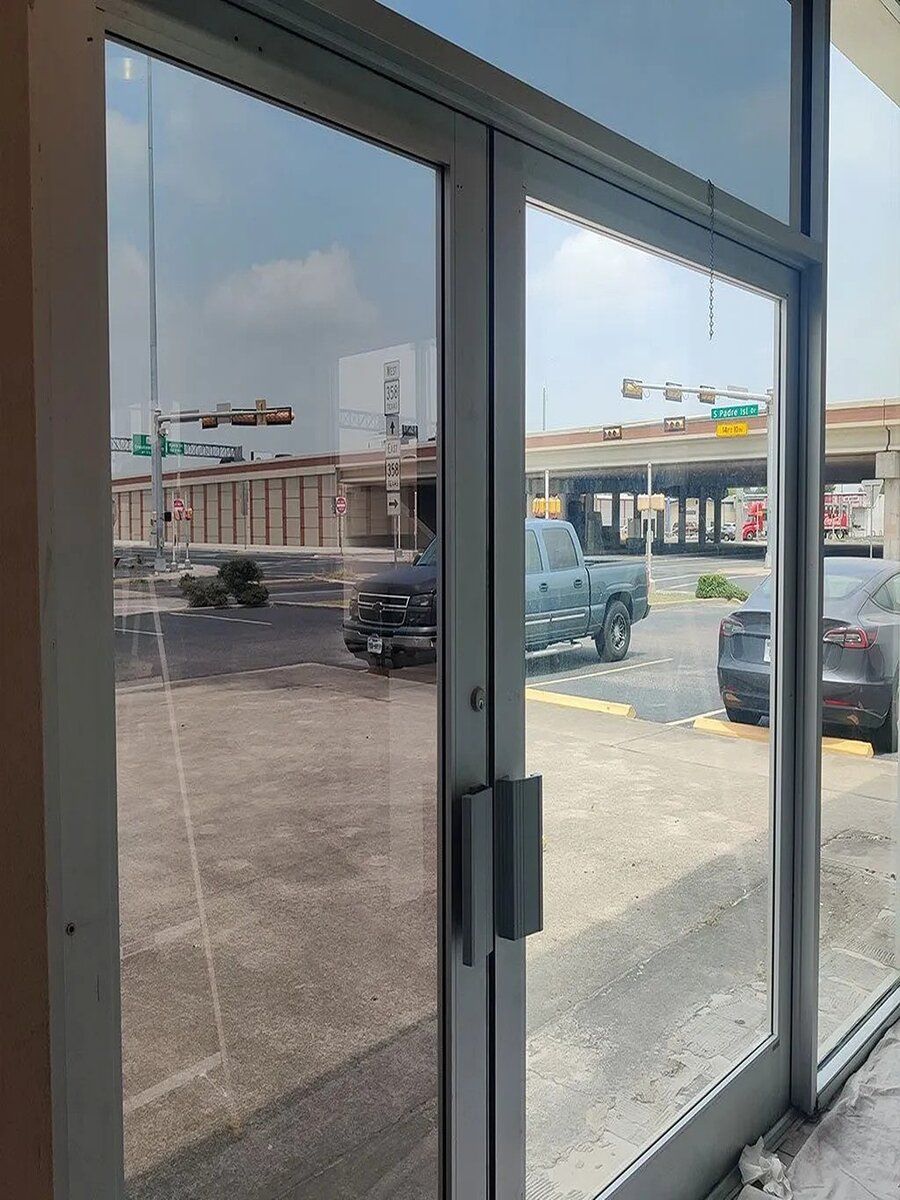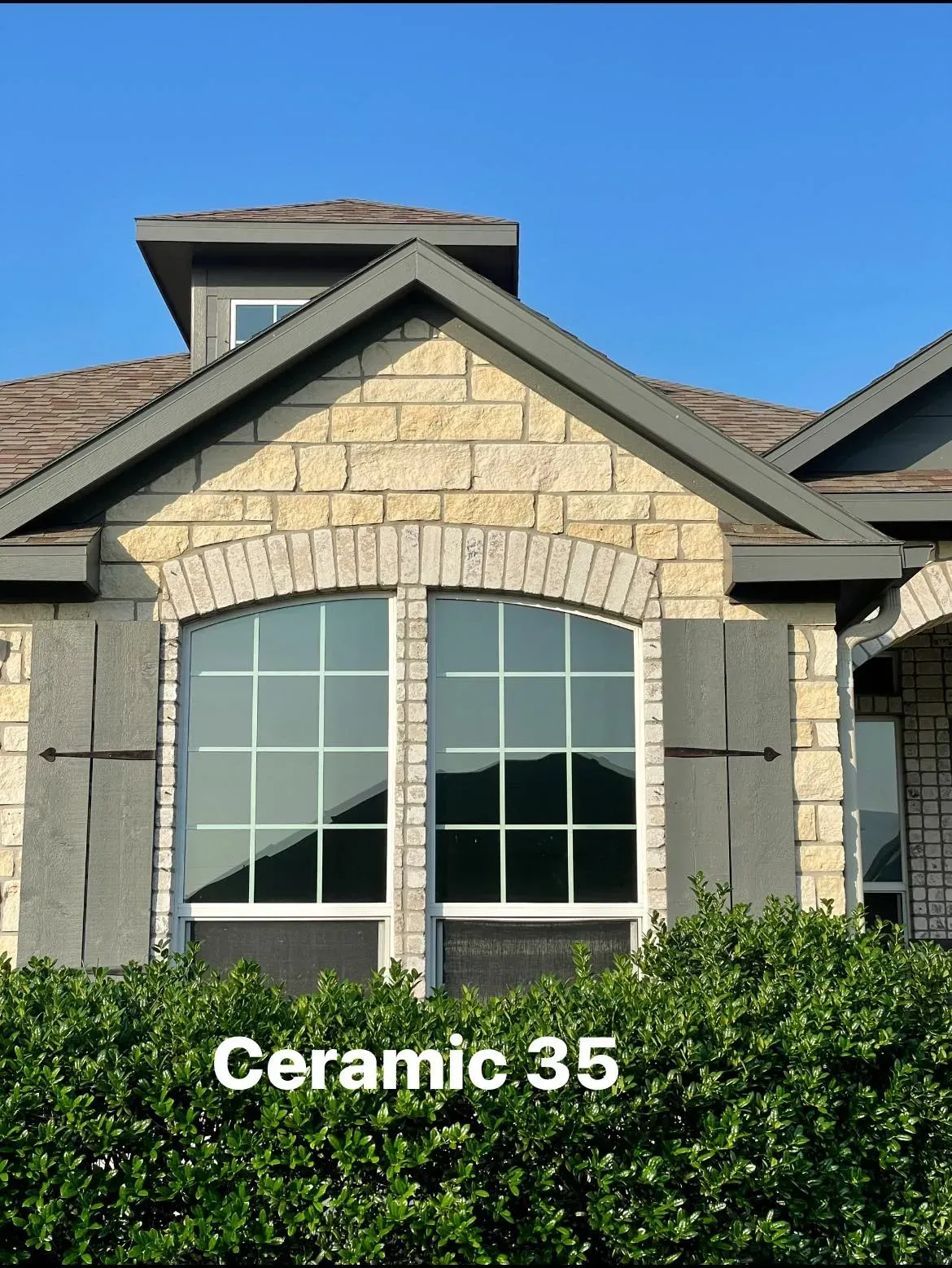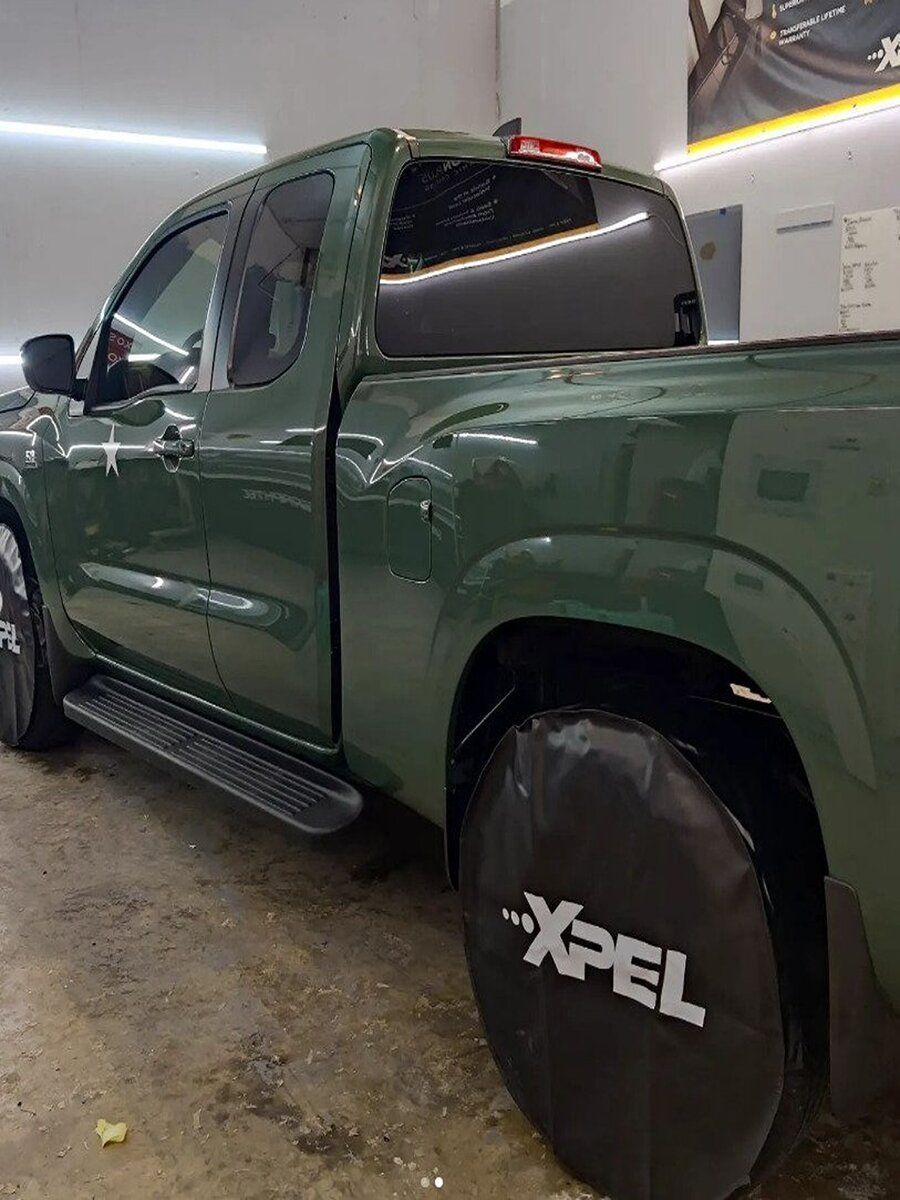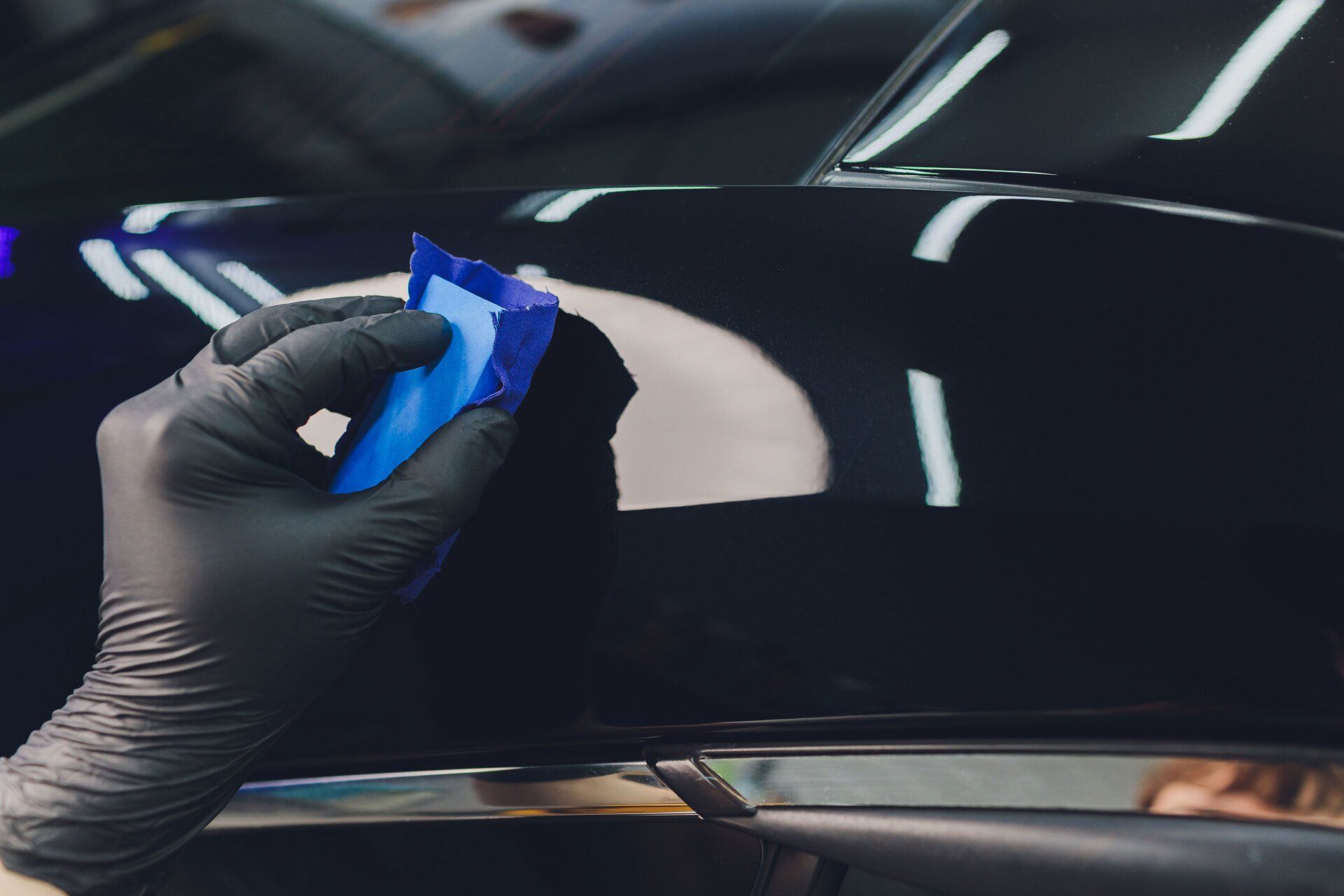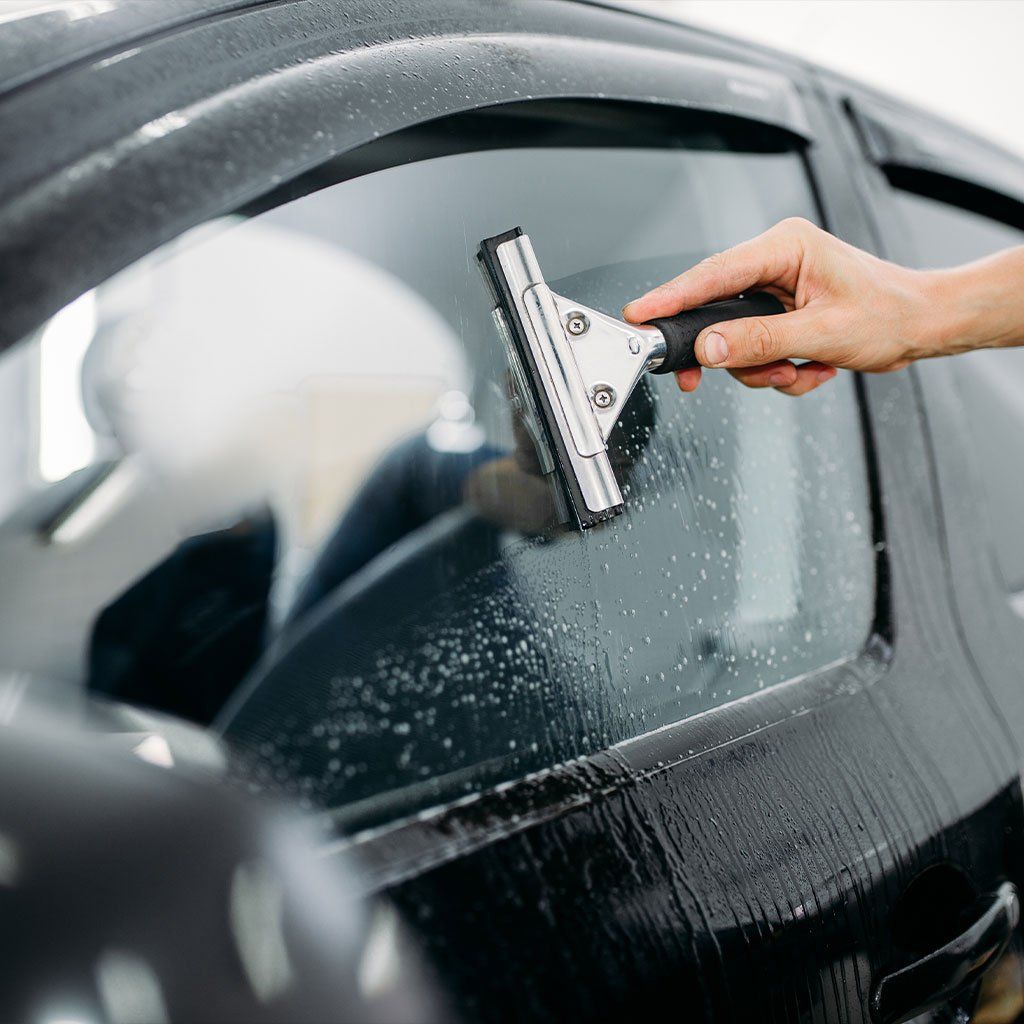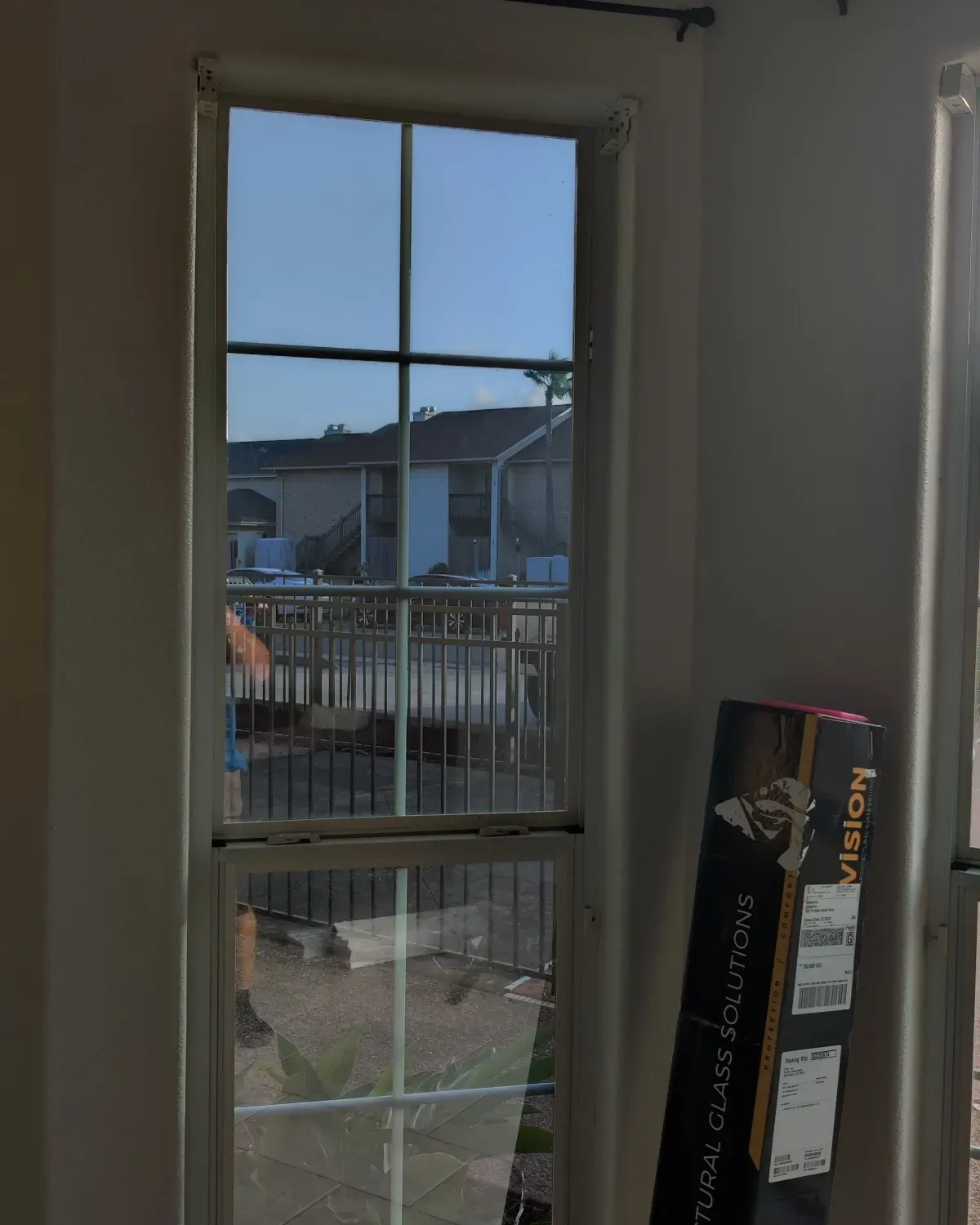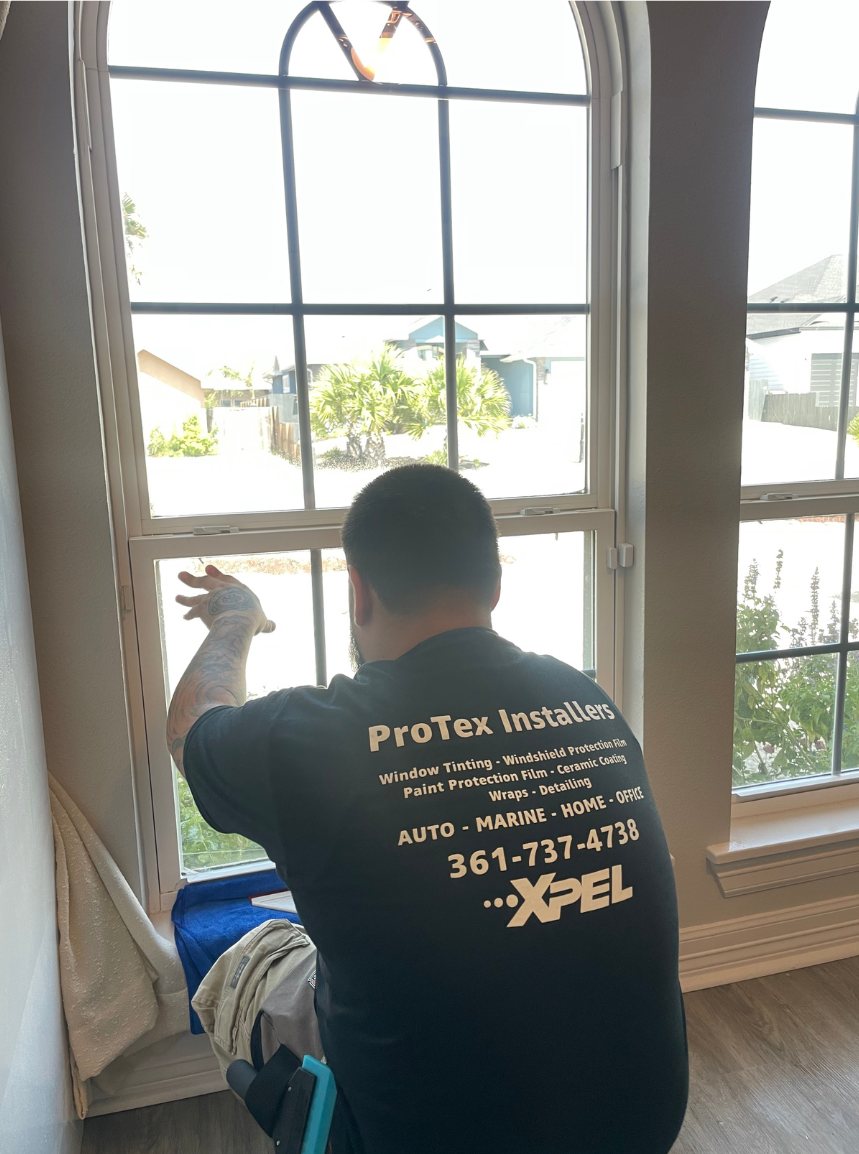Thermal Home Window Tinting Benefits: Understanding Heat Reduction Techniques
Tinting your home windows is a foolproof method for increasing energy efficiency and combating heat. The tinting technique involves applying a dyed film, which acts like sunscreen for your house, absorbing solar energy before it seeps in. As a result, it keeps your home cool even when the sun is beating down outside—it is almost like having an invisible thermal curtain! It's finally time to face summer with confidence and cool comfort. First off, let's explore dye tinting.
There are several benefits of home window tinting such as heat reduction, including blocking a significant amount of solar heat, reducing the need for excessive air conditioning usage, protecting furnishings from UV damage, and enhancing overall energy efficiency in your home. Additionally, it can create a more comfortable indoor environment by minimizing hot spots and glare.
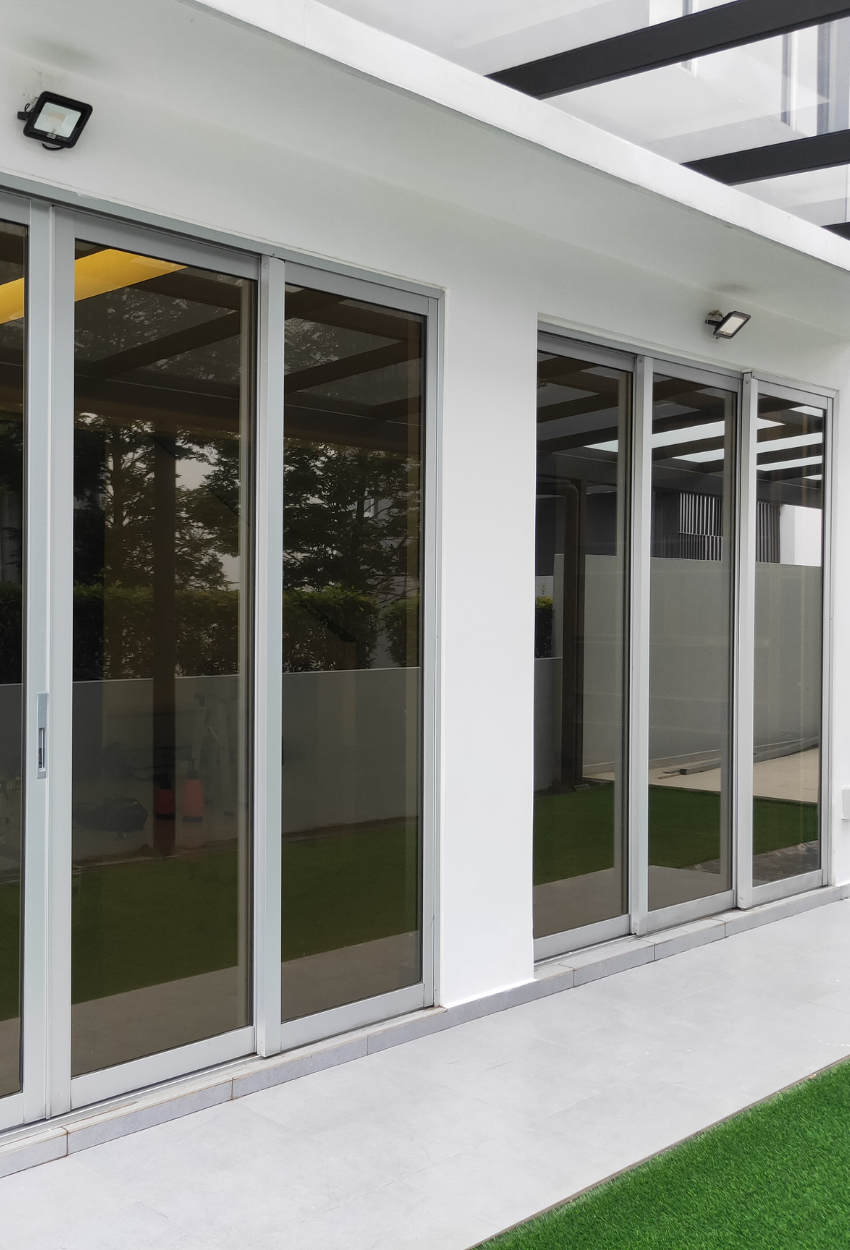
Tinting Techniques for Home Windows
When it comes to your home window tinting service, there are several options to consider. The choice of technique can significantly impact the overall energy efficiency and comfort of your home. Let's take a closer look at each method.
Dye Tinting
One of the most traditional techniques used in home window tinting is dye tinting. The film is dyed to absorb solar energy and prevent it from entering your home, effectively reducing heat buildup and making it more comfortable indoors.
While dye tinting is cost-effective and effective for reducing glare and protecting furniture and flooring from UV damage, it may not provide the same level of heat reduction as some other methods.
Metalized Tinting
For those seeking added security, privacy, and heat reduction, metalized tinting might be the best choice. This technique involves applying a film with microscopic metallic particles that reflect solar heat away from windows, keeping the home cooler and providing an added layer of shatter resistance.
Metalized tints also offer enhanced privacy by providing a one-way mirror effect during the day and are less susceptible to fading and discoloration compared to dyed tints.
Ceramic Tinting
Ceramic-based tints are considered top-of-the-line options in the world of home window tinting. These advanced films excel at blocking heat and UV rays while allowing visible light to pass through, maintaining natural light and optical clarity while benefiting from reduced heat and protection from harmful UV rays.
Unlike metalized films, ceramic tints do not interfere with electronic signals, making them ideal for homes with advanced technology setups. Although they may come at a higher price point, their long-lasting performance and enhanced features make them a worthwhile investment for homeowners seeking superior energy efficiency and comfort.
Understanding these differences is crucial in making an informed decision based on your specific needs and preferences. As we continue exploring each method, you'll gain insight into finding the perfect tint for your home windows.
In our next section, we'll delve into the specific types and applications of these window tinting films to further enhance your understanding of their benefits and find the best fit for your home.
Types and Applications of Films
When it comes to choosing the right film for your home window tinting, it’s essential to understand the various types available and their specific purposes. Here are three main categories of window films with distinct applications that contribute significantly to energy efficiency and heat reduction in homes.
Decorative Films
Decorative window films go beyond the practical aspect and add an aesthetic appeal to your home. These films are available in a variety of patterns, colors, and designs, providing options to match any interior aesthetic. They offer privacy without compromising natural light, making them perfect for creating a relaxing ambiance indoors. Some decorative films can even mimic the appearance of etched glass or stained glass, giving homeowners versatility in enhancing their home's appearance. Additionally, decorative films can be customized to include artwork or unique designs, offering a personalized touch to your living space. These films not only reduce glare and filter UV rays but also create a visually appealing environment while safeguarding your privacy within the comfort of your home.
Security Films
The safety and protection of your home are crucial considerations when selecting window films. Security films are specifically designed to fortify windows against forced entry and hold shattered glass together in case of an impact, providing an additional layer of protection against intruders and potential accidents. These films help reduce the risk of injury from broken glass shards and deter break-ins, contributing to overall home security and safety. In addition to their protective capabilities, security films also provide UV protection and help regulate indoor temperatures by minimizing heat penetration, further enhancing your home's energy efficiency.
Solar/High-Performance Films
For areas exposed to intense sunlight and requiring substantial thermal insulation, high-performance films are the ideal choice. These films offer advanced heat reduction properties, significantly reducing solar heat gain while allowing natural light to brighten the interiors. The increased thermal insulation provided by high-performance films aids in maintaining consistent indoor temperatures throughout the year, resulting in reduced energy costs associated with heating and cooling.
Imagine enjoying bright, well-lit spaces that remain cooler during scorching summers due to the exceptional heat-blocking characteristics of high-performance films. These specialized films play a vital role in improving overall energy efficiency by reducing reliance on air conditioning systems and promoting a sustainable living environment.
Selecting the appropriate type of film for your home window tinting depends on various factors, such as location, climate, design preference, and desired functionality. Each category serves specific purposes and contributes uniquely to enhancing the energy efficiency and comfort of your home.
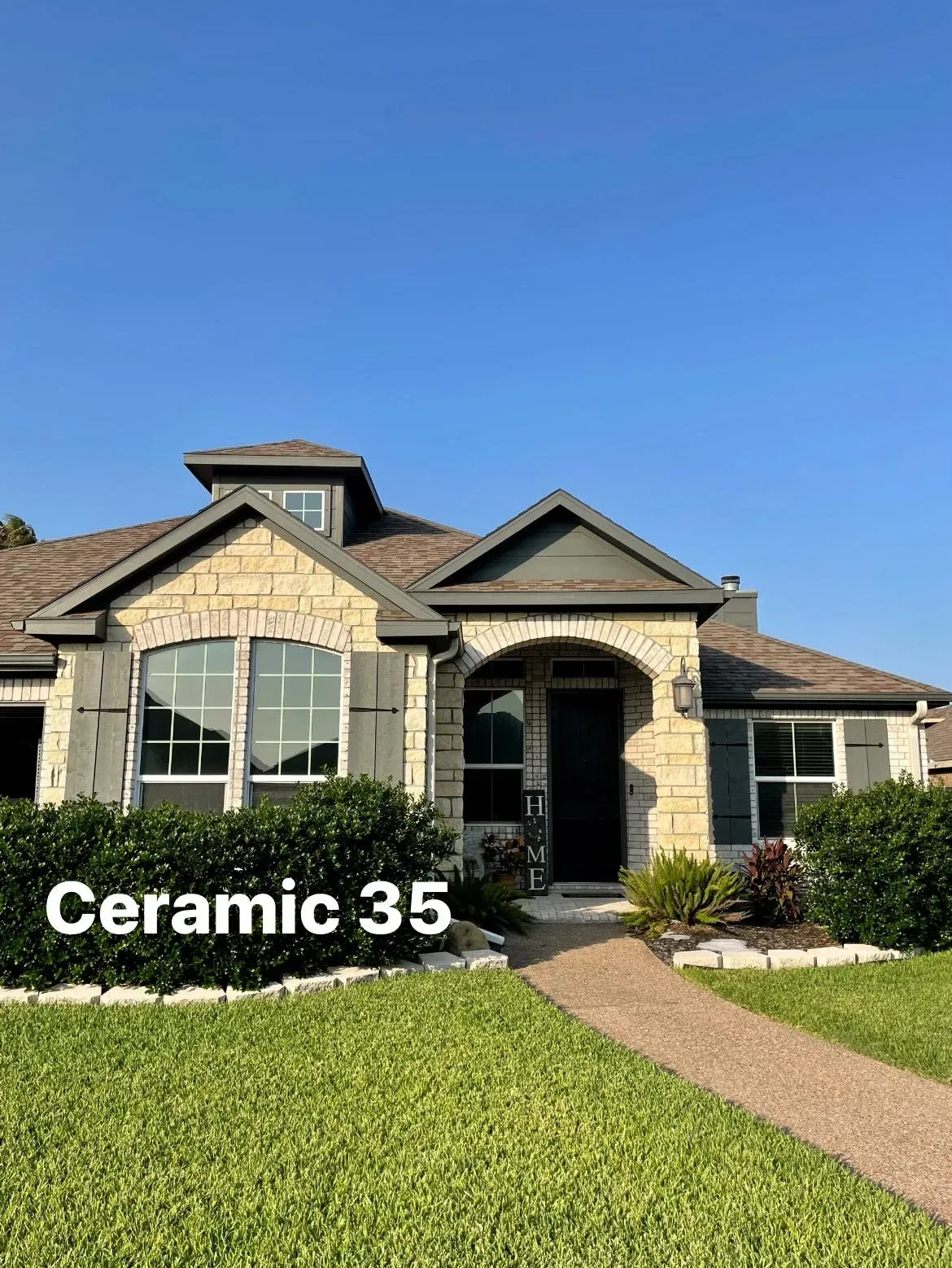
Perks of Tinting: UV Blockage and Comfort Enhancement
Have you noticed how quickly the interior of your home can heat up when the sun beams through the windows? This can lead to discomfort and additional strain on air conditioning units, resulting in higher energy bills. Here's where home window tinting works wonders.
Window tinting doesn't just darken your windows; it significantly reduces the amount of UV rays entering your home. In fact, some high-quality tints block up to 99% of harmful UV rays. This is vital for protecting your skin from sun damage and maintaining the vibrancy of your furnishings. Moreover, it also extends the lifespan of your carpets, curtains, and furniture by shielding them from fading and discoloration caused by direct sunlight exposure. So not only does tinting contribute to a more sustainable environment within your home, but it also minimizes your expenses on replacing or repairing household items.
Beyond UV blockage, consider another benefit: glare reduction. The intense glare from sunlight streaming in through un-tinted windows can make indoor spaces uncomfortable and overly bright, especially when you're trying to relax with a book or watch television.
Have you caught yourself squinting or repositioning yourself to avoid direct sunlight?
This visual discomfort can be easily alleviated with window tinting, which softens and diffuses natural light entering through the windows, leading to a more soothing and relaxing atmosphere.
So, whether it's reducing the adverse effects of UV rays on your skin or creating a visually serene atmosphere indoors, home window tinting offers tremendous benefits that improve both your personal well-being and the condition of your home over time.
How Tinting Lowers Energy Costs
When the sun streams into your home through windows, it brings more than just light and warmth. It also carries solar heat, which can significantly increase the temperatures inside. Without window tinting, this solar heat increases the workload on your air conditioning system, leading to higher energy consumption and increased strain on your HVAC unit.
This additional workload leads to higher energy usage, which is ultimately reflected in your monthly utility bills. By installing window tints, you create a barrier against much of this solar heat. This means your home stays cooler naturally, requiring less effort from your air conditioning system to maintain a comfortable temperature.
For example: in the summer months, an untinted window can let about 86% of the sun's heat into a room. On the other hand, a tinted window may only allow around 22-49% of the heat to pass through. This shows how significant the impact of such tints is on reducing the heat that enters your home.
The decreased reliance on air conditioning due to home window tinting can lead to exceptional energy savings. Moreover, by controlling solar heat gain, window tints help to balance indoor temperatures. This means that you won't just save money on cooling in the summer, but you'll also benefit during the winter - with improved insulation ensuring that indoor heat is retained more effectively.
Furthermore, some studies have indicated that residential window tinting can reduce energy costs by 30% or more. These substantial savings make residential window tinting a smart investment in the long run, essentially paying for itself over time through reduced utility bills.
With these clear benefits in mind, it's apparent that window tinting isn't just about blocking out harmful UV rays; it's about creating a more sustainable and energy-efficient home environment.
Given the compelling evidence of how home window tinting contributes to energy efficiency and heat reduction, understanding additional measures for further reducing heat gain in your living space will prove equally enlightening.
Additional Measures for Reduced Heat Gain
When it comes to reducing heat gain through windows and doors, several additional measures can be taken alongside window tinting to maximize the cooling effects in your home. Exterior shading devices such as awnings, shutters, and solar screens are excellent choices for creating added layers of protection against direct sunlight. They act as barriers, preventing excessive heat accumulation indoors.
Solar screens, on the other hand, are designed with special materials that protect against both heat and harmful UV rays. These screens typically block around 70-80 percent of the sun's rays from entering the interior space, resulting in a considerable reduction in the temperature inside your home. They allow you to maintain visibility and natural light while safeguarding against harsh glare and heat. Shutters present another effective option and can be particularly advantageous during hot weather or in regions with significant sun exposure.
By incorporating these exterior shading solutions, you create an additional line of defense against the sun's intense rays, thereby decreasing the demand for air conditioning and reducing energy consumption.
Alongside exterior shading mechanisms, advanced glass technologies offer innovative approaches to controlling heat transfer into and out of the home.
Advanced Glass Technologies
Low-emissivity (Low-E) windows feature a microscopically thin metal coating that is well-suited to effectively manage heat transfer within your living spaces. The Low-E coating significantly reduces heat transfer by reflecting large amounts of radiant infrared energy. This means low-emissivity windows contribute to keeping your home cooler during warm seasons by reflecting unwanted heat back to its source - outside - while also retaining warmth during cooler months by reflecting interior heat back indoors.
These innovative windows not only complement the impact of window tinting but also provide comprehensive thermal management over different seasons.
Advanced glazing technologies add an extra layer of insulation to your windows and have been proven to improve energy efficiency. By integrating these features with window tinting, you are essentially fortifying your home's defenses against unwanted heat gain while promoting comfort and sustainability throughout the year.
By optimizing these two additional measures alongside professional window tinting services, homeowners can effectively curtail excessive heat absorption, thereby enhancing their homes' energy efficiency.
Final Words
Window tinting goes beyond aesthetics: it is also an invaluable strategy for increasing energy efficiency and comfort within your living spaces. The thermal benefits associated with window tinting - such as solar heat rejection and UV protection - illustrate its transformative power. Professional installation can have profoundly positive effects on an individual's lifestyle.
ProTex Installer's expertise in home window tinting provides an effective means of mitigating heat infiltration, protecting furnishings, and creating a more enjoyable indoor environment. Reach out to ProTex Installer now and discover the lasting benefits of professionally installed tinted window glass!


